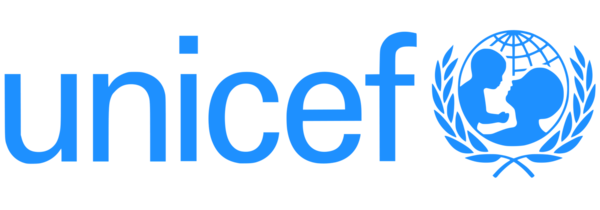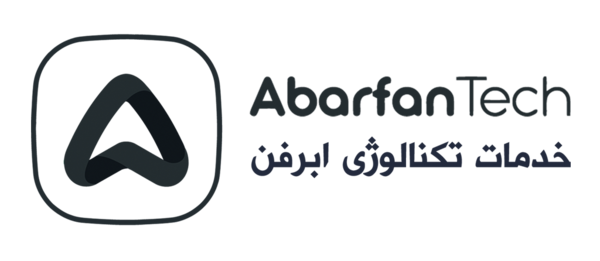It was approximately half a year ago, when we organized our first hackathon in Afghanistan- Garage48 Empowering Women Kabul - which brought together over 150 participants.
We were impressed by the enthusiasm, optimism, and brightness of the young people we encountered there and we decided that we have to come back- no matter what. For us, we saw something in Afghanistan, which has become a rare quality to come across these days- the hackathon was treated by the participants as a place, where new ventures would take off, as opposed to just a weekend competition for fun. Many of these teams continued the work after the hackathon, with a few implementing their projects within the local market.
Needless to say, due to the COVID-19, all the travel plans and physical events this Spring were canceled for the whole world. Something good had happened for Garage48 in all this chaos and hecticness though- we managed to take our good old, bulletproof 48-hour hackathon format online.
It all started with the first online Hack the Crisis event, that Garage48 put together with AccelerateEstonia in less than 6 hours. The idea of the hack was to bring together the most active citizens and tech-entrepreneurs of the country, to fight against the COVID-19 crisis and brainstorm new solutions, in a united front. After the first event in Estonia, the world took notice and within 3 months, more than 70+ events popped up all across the globe. From India to Italy, from Germany to Brazil...Garage48 helped out with organizing some of these hackathons and learned a lot throughout the whole process, refining our online-hackathon-process more and more, one event at a time.
The idea to organize Hack the Crisis Afghanistan seemed like a daunting task in the beginning. We were not quite sure where to begin. We didn’t have a good overview of the problems, that Afghanistan- a country, already shaken by the plagues of political instability, violence, and war - a country more vulnerable than most other regions of the world- would be facing. Yet we wanted to target and reach the root of the local problems that COVID-19 brought to Afghanistan. We didn’t know exactly, how or in which language should we reach out to the participants, and if participating in an online hackathon would be even in their mind space in these tough times.
And then there were these super practical questions, that popped up.
How do you organize an online hackathon in a country where internet accessibility & infrastructure is often little-to-none, or extremely poor in bandwidth? Not to mention, excessively expensive as an every-day, must-have commodity?
Also, the power outages are something that delay the work many times a day, so planning everything by the tight schedule of a regular online hack would have never worked in Afghanistan.
It was obvious that we couldn’t have solved any of these problems on our own from the distance, so we decided to partner up with a local digital skills academy & ecosystem builder Startupistan.
With a local team and active network within the region, Startupistan was an absolutely crucial partner in helping us to take a normally offline event - online. After speaking to a range of internet providers & telecommunication companies for assistance, including Space X’s Starlink program - Startupistan manually loaded the internet and data packages onto every participant’s phone, to ensure a reliable internet connection for the duration of the hackathon. The local team helped us also with translating the registration forms and all the main communication messages into Dari and Pashto- in order to reach more participants and involve more local problems. During the hackathon, 2 hotline numbers were running 24/7, so that the participants could get help with their prototypes if the internet or electricity was down.
All this hard work truly paid off. Altogether we received around 500 submissions from 30 different provinces all over Afghanistan.
Participants applied from all across the country
We narrowed the number of the teams competing down to Top 100 and all these teams entered the hackathon workplace in Slack as well. Altogether we saw over 400 active participants on Slack- a number that completely blew our minds! One of our biggest fears before the event kicked off was that Slack will just not work as an online hackathon platform in Afghanistan. The silence and lack of messages in Slack prior to the hack fed that fear even more. We started the Slack onboarding approximately a week before the hackathon, and it took us time but by the 9th of June (the beginning of the event) #hackthecrisisafghanistan Slack workplace was bursting with messages!
409 participants in Slack in Afghanistan from 30 different provinces all over Afghanistan!
The participants had to report the team’s plans and progress throughout four checkpoints, which became the biggest point of contact for us with participants as well. Although the internet wasn’t good enough to meet the participants via video, the audio quality of the Zoom calls was surprisingly good. Checkpoints were run by a mix of international and local mentors, which offered a different perspective to the teams and gave them a chance to explain the problems in their native languages. It was actually only during the checkpoints, we realized the final number of active teams participating- the 40 teams that finished the hackathon, were the ones who also completed all four checkpoints.
Our beloved UX- mentor Jaanus Jagomägi supported by a local mentor Sayed Ahmad Fahim Masoumi listening to the team’s progress in checkpoints
The 3.5 days of hard work of prototyping and building, ended with the teams submitting their video pitches and the jury looking through the pitches and choosing the top teams. The Top 12 video pitches were also presented on the FB Live and can be viewed again on the hackathon homepage.
The final decision for the jury was tough and the decision took way longer than expected,
but the best teams, with the biggest expected impact, were the following:
III place Women for Women, prize 50 000 AFN and one-year Factory Berlin Nomadic Membership
Super happy to have received the support and recognition for her project- Women For Women
A team of 6 women. As the whole world's economy suffered due to COVID-19, so did the handmade-products industry in Afghanistan, which used to provide the livelihood for lots of women. The team built a website, which helps women sell their handmade products online and buy the products made by other women. The website supports local payments like mobile money, Afghan credit cards, and cash on delivery. All the items are delivered nationwide.
II place Laborer- prize 75 000 AFN
A team that tried to solve the problem for Afghan labor workers, whose income depends on a daily wage and jobs they can find. Prior to the COVID-19, they were looking for jobs at known, specified public places. COVID-19 made this stand and wait approach almost impossible. It is estimated that approximately 2 million Afghans have lost their jobs due to the COVID-19 crisis and the number keeps increasing. Team Labourer built an intuitive mobile app for job seekers and job providers so that both parties can find a solution to their problem.
I place got shared by two teams because they were equally as good and solved the same problem from a different angle. Actually, the jury even mentioned they should join forces and work together in the future. The winners were Digital Courses and Bootcamp.af ! Both teams received 100 000 AFN.
Digital Courses- due to lack of internet and computers, online learning is almost impossible in Afghanistan. Digital Courses produces the courses on DVD’s and flash disks on different topics so that the students can still learn at home. The initiative also eases the financial situation of the teachers who have lost their jobs due to the crisis, by inviting them to record the lessons on the topics they are teaching.
Jamal Salehi, the team lead of Digital Courses building the prototype
Bootcamp.af- lots of teachers have lost their jobs and some are trying to teach via Youtube. Bootcamp.af helps the teachers in creating high-quality content videos via Youtube and also tracks the progress of the students.
This time around, with Hack the Crisis Afghanistan, we wanted to make sure, that the ideas will live further the initial event and ensure that the most promising prototypes receive the necessary guidance and support to implement their projects in the real world.
That 's why the TOP 5 projects of the hackathon received access to Startupistan’s 3-month incubator. On top of the above-mentioned teams, a Crowdfunding Platform for Afghanistan was accepted to the incubation program as well. We are crossing our fingers, that the program and the support of the international and local mentors, will sculpt these disruptive ideas into sustainable real-world projects, with a real impact.
No hackathon would take place without the mentors and we had both excellent local and international mentors and jury members, helping and guiding the participants throughout the event. Thank you Joao Rei for leading the whole hackathon flow, Mozamel Aman, Paddy Hall, Hassina Hamed , Najma Hussaini, Attatullah Hazrat , Khwaja Amrullah Sediqee , Hayatullah Ibrahimy , Maciej Bulanda , Melissa Sassi , Somaye Sarvarzade , Ahmadullah Alnoor , Rafiullah Samim , Ahmad Zubair Zahid , Ihsan Ayubi , Sami Nazari , Sayed Mohammad Abedy , Sayed Muzamil Sadat , Shahid Mamond , Tayeba Abidi , Shazia Mohseni , Thomas Kuhnert , Mitchell Bradley , Jamshid Hashimi , Abdullah Halimee , Sayed Ahmad Fahim Masoumi , Shakiba Ibrahimkhail , Tom Hayton , Zarina Resa , Imran Hotak , Mustafa Hashimi , Triin Preem , Jaanus Jagomägi , Mayri Tiido , Ronald M Steyer
Ismail Safwat , Ahmad Masih Ahmadyar, Jody Potter, Zakir Hamza, Mohammad Zafar Shafaq , Safiullah Momand, Mohammad- for supporting the teams with your knowledge and encouraging words.
Thank you to all the volunteers that joined us in putting this event together!
A big thank you to all the supporters of the hackathon, and for their willingness to help support the project following the event. A big shout out to;
Estonian Development Cooperation Fund for continuously supporting bold ventures in the places, that need it the most.
UNICEF (United Nations Children’s Fund)
Provided local education focused mentorship and support
- for the hackathon and will continue this support for our Post-Hackathon support program.
Bridge For Billions (Online business incubator for entrepreneurs globally)
Will run the online incubation programs for the winning projects, to help them build and take their projects into the real world.
Positive Blockchain (Blockchain ecosystem for social impact)
Provided blockchain focused mentorship and support.
CodeDoor (E-learning platform for underrepresented groups to learn how to code)
Supporting education focused teams with online support and guidance.
Factory Berlin (an international community of innovators – the brightest minds from tech, politics, art, and science together into one collaborative ecosystem.)
Providing remote support and co-working space for the Berlin mentors, and offering a one year nomadic membership to the winning team.
Abarfantech (an Afghanistan based design and development studio)
Provided domains & hosting packages for the 5 best teams, worth $500 in total.
Until next time,
Garage48 x Startupistan
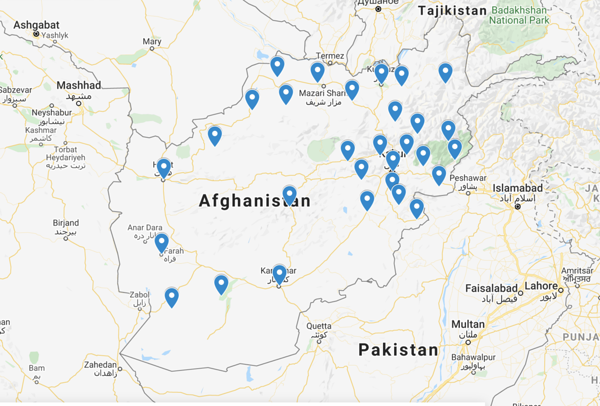
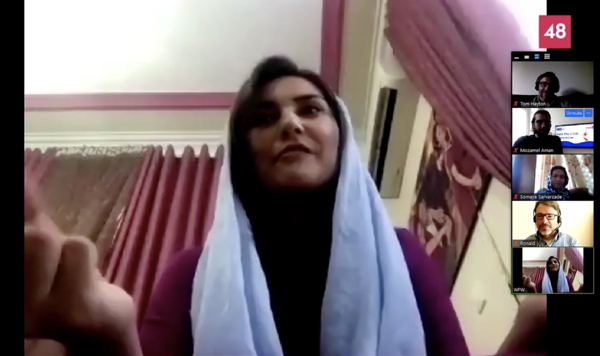
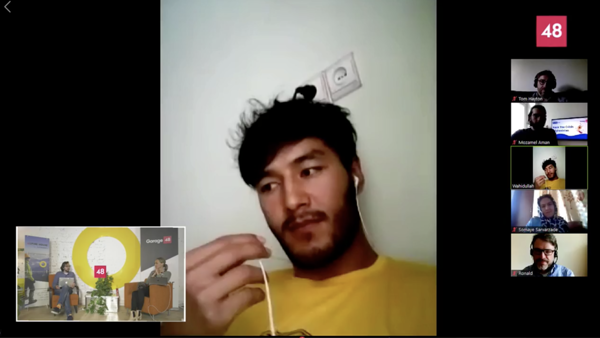
_block.jpg)
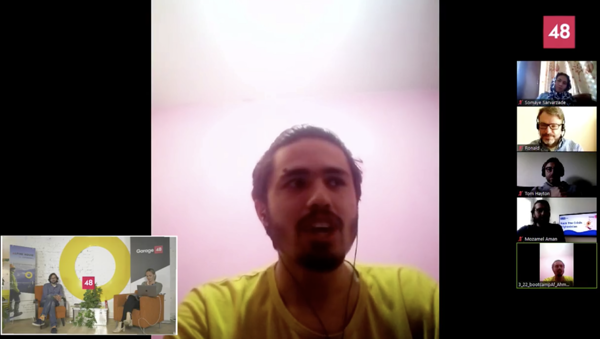
.png)
_block.png)
